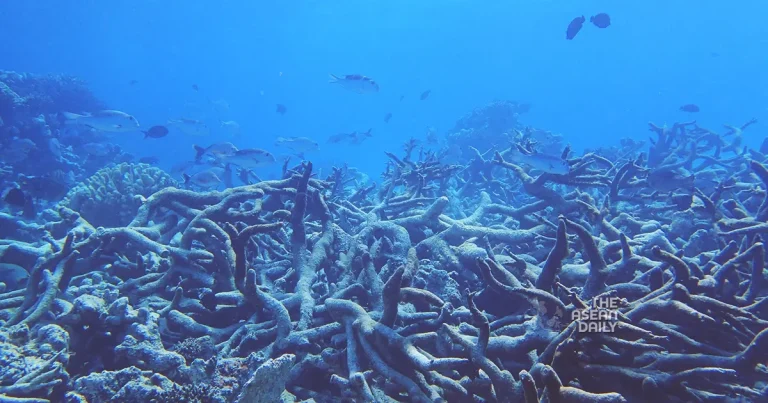25-2-2024 (MANILA) The Philippines is grappling with a potential decline in fisheries production following a study by the Center for Strategic and International Studies, revealing that China has reportedly destroyed over 21,000 acres of coral reefs in the West Philippine Sea (WPS). An expert from the University of the Philippines-Marine Science Institute (UP-MSI) issued a warning, citing the immediate impact on fish habitats and subsequent consequences for the country’s fishing industry.
UP-MSI assistant professor Mike Atrigeneo, in a recent radio interview, expressed concerns about the destruction’s repercussions, explaining that the decline in fish production is a direct consequence of coral reef devastation. The worst-case scenario, he noted, could be the extinction of fish species dependent on these reefs.
The study by the Center for Strategic and International Studies highlighted China’s activities causing significant damage to the marine environment in the WPS. Another report from the Asia Maritime Transparency Initiative, titled “Deep Blue Scars: Environmental Threats to the South China Sea,” attributed coral reef damage to Chinese actions such as dredging, landfills for artificial islands, and clam harvesting.
Atrigeneo stressed that certain fish, including lapu-lapu and maya-maya, face extinction due to the destruction of their coral habitats. The economic implications are significant, leading to lower fish catches and potential consequences for the fishing industry.
According to Atrigeneo, the normal fish catch rate ranges between 20 and 40 metric tons per square kilometer. The impact of the destruction, he noted, results in a reduced catch, affecting the economic sustainability of the fisheries.
In response to these developments, a vessel from the Bureau of Fisheries and Aquatic Resources (BFAR), the BRP Datu Sanday, will remain in the Panatag Shoal area despite China’s claims of intrusion. The “persistent presence” of the BFAR ship aligns with the Philippines’ national laws and positions in the West Philippine Sea, ensuring the safety of Filipino fishermen and supporting their activities.
Furthermore, the Armed Forces of the Philippines (AFP) announced plans for more extensive and frequent joint maritime patrols with the United States military in the WPS. AFP Chief Gen. Romeo Brawner Jr. revealed that such collaborations, in partnership with the US Indo-Pacific Command, are underway to safeguard Philippine interests in the region.




